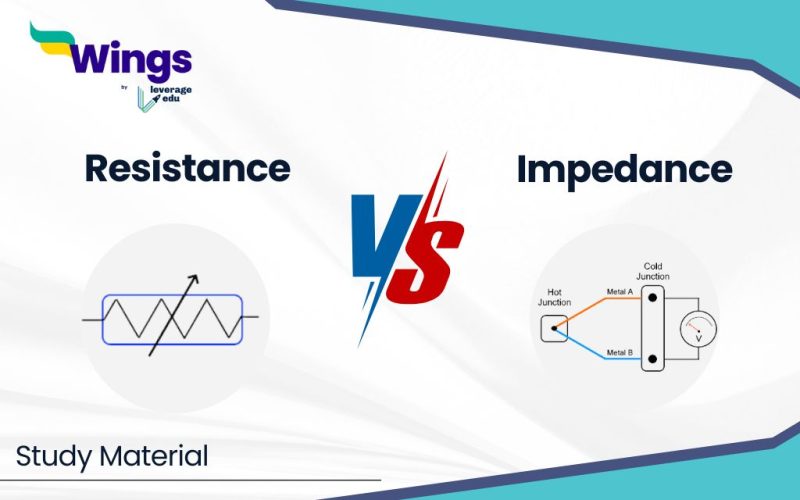The main difference between resistance and impedance Is in their scope and consideration of factors affecting the flow of electricity in a circuit. In electricity, resistance and impedance are two terms that are often confused.
While they might seem similar, they represent different aspects of how electricity behaves in a circuit. Keep reading this blog for detailed information on the difference between Resistance and Impedance.
Table of Contents [show]
What is Resistance?
Resistance is a fundamental concept in the world of electricity. It’s like the speed bump on the road of electrons, slowing down their flow.
In simpler terms, resistance is the measure of how much a material or a component in an electrical circuit hinders the flow of electric current. Some materials, like metals, have low resistance, so they let electricity flow through easily. Others, like rubber or plastic, have high resistance, making it tough for electricity to pass.
What is Impedance?
In the concept of an electricity circuit, impedance is the total opposition to the flow of alternating current (AC) in a circuit. It’s not just about how much a material resists the flow of electricity, like resistance, but also about how it responds to changes in the current’s direction.
Impedance considers two main factors: resistance and reactance.
Also Read: What is the Difference Between Regulated and Unregulated Power Supply?
Difference Between Resistance and Impedance
Have a look at the table below for a detailed description of the differences between resistance and Impedance based on many factors, such as:
| Factor | Resistance | Impedance |
| Definition | Opposition to the flow of electric current in a circuit | Total opposition to the flow of alternating current (AC) |
| Components | Material or component property | Includes resistance and reactance (from capacitance and inductance) |
| Unit | Ohms (Ω) | Ohms (Ω) |
| Nature | This applies to both DC and AC circuits | This mainly applies to AC circuits |
| Variability | Remains constant in both DC and AC circuits | Can vary with frequency in AC circuits |
| Effect of Frequency | Not influenced by the frequency | Can vary with frequency in AC circuits |
| Application | Commonly used in simple DC circuits | Essential for analyzing AC circuits, like audio systems |
Also Read: What is the Difference Between a Capacitor and a Condenser?
Application of Resistance and Impedance in Real-Life
To better understand the concepts of Resistance and Impedance, you must know their real-life applications too. Here are some real-life applications of both Resistance and Impedance in real life:
- Electric heaters use resistance to generate heat.
- Audio systems use impedance to ensure proper signal transmission without distortion.
- Stovetops and ovens use resistance in heating elements.
- In electronic filters, impedance matching improves signal quality by minimizing reflections.
- Resistors are used to control current and voltage levels.
- Medical devices, like ECG machines, use impedance measurements for diagnostic purposes.
FAQs
The two types of Impedance are input impedance and output impedance.
The main difference between Resistance and Impedance is their scope and consideration of factors affecting the flow of electricity in a circuit.
The SI unit of resistance is ohm (symbol Ω ).
RELATED POSTS
This was all about the “Difference between Resistance and Im[edance”. For more such informative blogs, check out our Study Material Section, you can learn more about us by visiting our Indian exams page.
 One app for all your study abroad needs
One app for all your study abroad needs















 45,000+ students trusted us with their dreams. Take the first step today!
45,000+ students trusted us with their dreams. Take the first step today!
